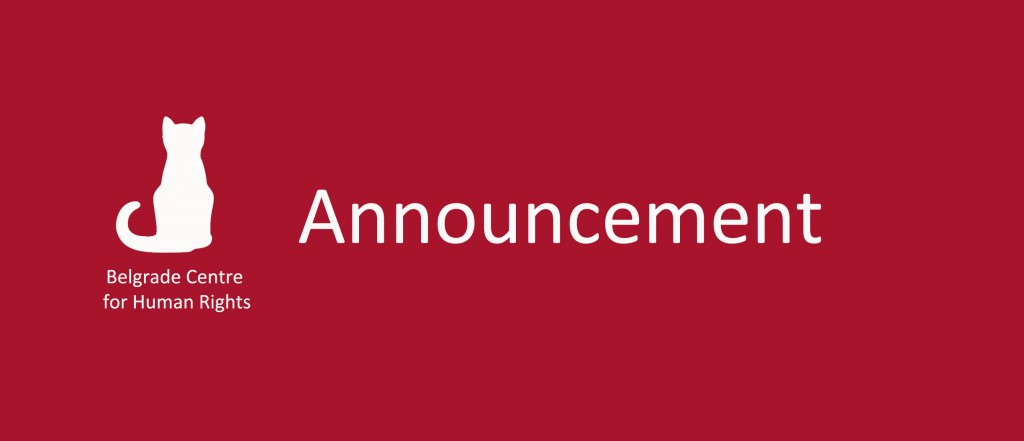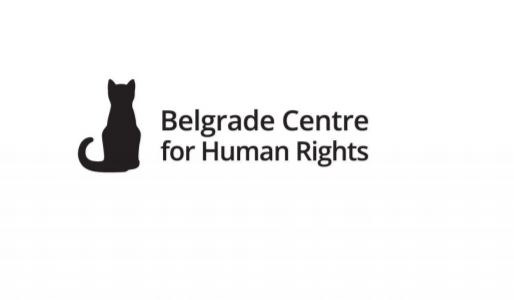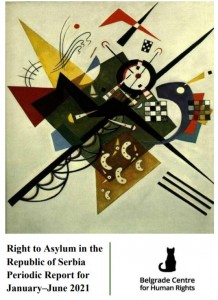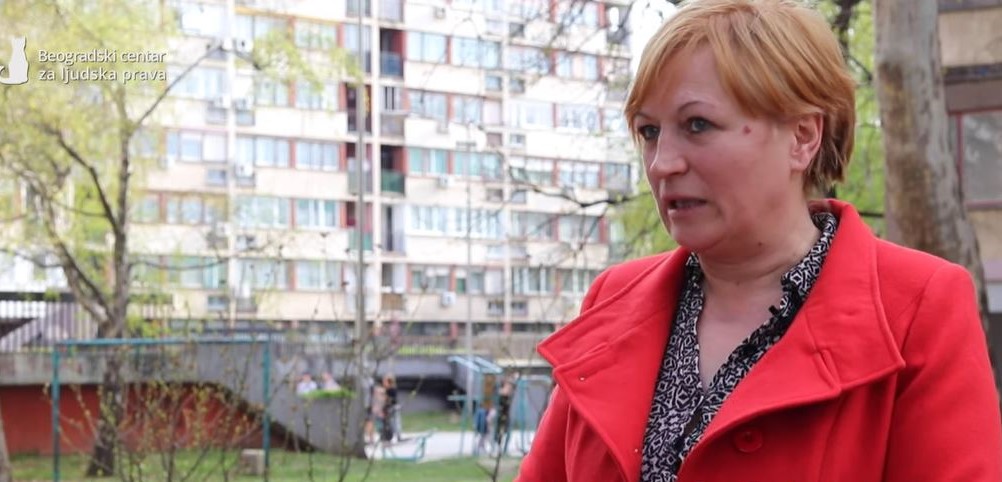 The Belgrade Centre for Human Rights (BCHR) alerts to the main deficiencies of the Draft Internal Affairs Act (hereinafter: Draft) that may have far-reaching negative consequences on civil rights and freedoms.
The Belgrade Centre for Human Rights (BCHR) alerts to the main deficiencies of the Draft Internal Affairs Act (hereinafter: Draft) that may have far-reaching negative consequences on civil rights and freedoms.
First of all, the definition of the police in Article 25 of the Draft as “an organised force of coercion” is unsuitable in a democratic society based on human rights, in which the police should be a professional and politically neutral service protecting civil rights and freedoms; however, according to the Draft, the main attribute of the police is its entitlement to use coercion in specific cases. Another concerning entitlement is the one given to a senior government official (the Minister of Internal Affairs) to allow “other entities” to use the word “police” in their names, as it provides ample ground for abuse.
The Draft either fails to include or waters down specific safeguards against police abuse provided for in the valid Police Act. For instance, as opposed to Article 65 of the current Police Act, Article 58 of the Draft fails to mention the right of citizens to require that a person they trust be present during the exercise of police powers.
Article 59 of the Draft prohibits “publication of information about the identity” of police officers exercising police powers, without any valid explanation; fines for violating this ban range from 30,000 to one million RSD. This provision is not in compliance with Article 82 of the Public Information and Media Act, under which private information or personal record may be exceptionally published without the consent of the person at issue if in a particular case the public interest to know the information or the record overrides the interest to prevent their publication; public interests shall prevail especially in cases where the information or record pertains to a person, event, or occurrence that is of interest to the public, especially if it pertains to a holder of a public office or political function, and the publishing of the information is in the interest of national security, public safety, prevention of disorder or crime, protection of health or morality, or the protection of rights and freedoms of others, or in the event the person has attracted the public attention by their statements or behaviour in private, family or professional life and therefore given rise to the publication of such information or record. The protection of the identity of police officers violating human rights or engaging in other misconduct while performing their duties is unjustified and may greatly impinge on people’s decision whether or not to take part in protests and record illegal actions by the police, which, to recall, is often the only and strongest evidence victims of police ill-treatment have.
Furthermore, the Draft lays down that police officers shall wear on their uniforms visible identification insignia comprised of “a combination of letters and/or numbers”. In addition to the fact that the Draft does not specify the complexity or length of the combination of letters and/or numbers identifying the officers (there is, e.g. a major difference between the “Belgrade 2255” and “X4Y17Z25”), there is no doubt that this method of identification will not facilitate bringing to justice police officers violating the law and human rights given that victims or witnesses of such events can hardly be expected to remember combinations of letters and/or numbers as easily as they would the officer’s first and last names. The irrationality of the provision is stark given that Article 59 of the Draft obligates police officers to show their official IDs (with their first and last names) before or after exercising their police powers. The crucial importance of enabling the efficient and simple identification of police officers violating the law and human rights is vividly illustrated by the numerous cases of police ill-treatment during the July 2020 protests, the perpetrators of which have not only gone unpunished, but – with the exception of one case – have gone unidentified as well.
Article 74 of the Draft lays down that only police summons issued to suspects shall specify that they have the right to a lawyer. This provision is not in accordance with the recommendations of the European Committee for the Prevention of Torture and Inhuman or Degrading Treatment or Punishment of the Council of Europe (CPT), which has repeatedly emphasised the importance of the right to a lawyer, specifying that the enjoyment of the right should not be made dependent on the person having been formally declared to be a “suspect” and on how “minor” the offence of which they are suspected is.[1]
Article 81 of the Draft, under which persons being deprived of liberty shall be notified of their rights, needs to be elaborated. It should specify that people deprived of liberty shall be notified of their rights safeguarding them against torture and other forms of ill-treatment, notably, the right to contact and access their lawyer as soon as possible; the right to notify a person of their choice of their deprivation of liberty; the right to be examined by a doctor of their own choosing; and the right to legal aid irrespective of their financial standing, if they require such aid to protect them against torture or inhuman or degrading treatment under Article 4 of the Legal Aid Act (hereinafter: LAA).
The BCHR is also of the view that the adoption of the new law on internal affairs is a good opportunity to initiate amendments to the LAA to facilitate expedient access to the procedure by which people deprived of liberty can apply for legal aid to protect them against ill-treatment. The LAA provisions on access to legal aid by persons deprived of liberty in the police or other institutions, who are entitled to and need such aid to protect them against ill-treatment by the officials in the institutions they are held in, are inadequate.
Articles 71 and 156 of the Draft provide for massive audio-video police surveillance and use of facial recognition biometric software, which is disputable in terms of the necessity and proportionality of interfering in the right to privacy of a large number of citizens in a democratic society. On the other hand, the Draft does not provide for audio-video surveillance of police offices in which people, who have been summoned or deprived of liberty, are interviewed. In its latest (2018) Report on its visit to Serbia, the CPT said that the Serbian authorities should establish dedicated interview rooms with audio and/or video equipment for recording police interviews.[2] The National Assembly and Government have not taken any steps in response to an initiative the former Protector of Citizens submitted to them in 2016, to mandate the recording of police interviews.
Article 93 of the Draft enumerates the reasons why the police may enter people’s homes and other premises without a court warrant, which go beyond those set out in Article 40(3) of the Constitution. Whereas the Constitution allows the police to enter a person’s home or other premises without a court warrant only if necessary to deprive of liberty a criminal offender or eliminate a direct and grave risk to people or property in a manner stipulated by the law, the Draft unjustifiably extends this entitlement to several other situations requiring a court warrant under Article 152 of the Criminal Procedure Code (e.g. if the police suspect that a person they are looking for – the accused is in the premises or in order to secure evidence of a committed crime).
The provisions of the Draft on security checks are imprecise and possibly unconstitutional. Article 108 of the Draft lays down that security checks shall entail checking and processing data entered in response to the questions in the questionnaire on identification data; some of the data that must be entered in the questionnaire include “contact details (telephone number and e-mail)” and “data of household members”. A mere linguistic interpretation of these provisions provides a glimpse of the huge potential for abuse of collecting and processing numerous personal data (e.g. data concerning telephone numbers and e-mails may include, e.g. data on communication traffic, while data of household members may include any of their personal data). Furthermore, under Article 111 of the Draft, the security check procedure and the questionnaire template are to be laid down by the Minister, although Article 42 of the Constitution requires that the collection, storage, processing and use of personal data must be governed by a law, not by a by-law. Finally, Article 108 of the Draft, under which job applicants and applicants for police and firefighting training and others, who refuse to consent to a mandatory security check, shall be deemed to have abandoned their application or realisation of their right, is inadequate from the perspective of balancing conflicting interests at stake.
The Draft does not put provide adequate grounds for conducting effective investigations of police ill-treatment. The proclaimed independence of the Internal Control Sector (in Article 199 of the Draft) can in practice be undermined by the Minister’s powers to “put in place conditions for independent internal control” (Article 189) and to control the work of all Sector staff by establishing a special commission (Article 201), the composition of which is not defined. The Sector’s independence is also brought into question by the fact that, like the valid Police Act, the Draft does not specify who shall be employed in this Sector (which is mostly staffed by former police officers).
The provisions on suspension and dismissal of police officers in the Draft are not in compliance with valid standards on the prohibition of torture and other forms of ill-treatment. The CPT and the European Court of Human Rights have repeatedly underlined that public officials accused of torture or other forms of ill-treatment must be suspended during investigation and trial and dismissed if they are found guilty, which is crucial for preserving public trust in the work of state authorities. The Draft, however, does not provide for mandatory suspension and dismissal in such cases. Article 345 of the Draft sets out that police officers “may be” suspended on the reasoned proposal of their superiors if they are prosecuted for a crime prosecuted ex officio or subject to disciplinary proceedings for a grave violation “if their presence at work would prejudice the interests of the service, obstruct the collection of evidence or the course of the criminal or disciplinary proceedings” and that their suspension will be ordered by the Minister or a person s/he designates. On the other hand, dismissal of police officers found guilty of a crime depends on the type and severity of the penal sanction (minimum six months’ imprisonment, suspended six-month jail term or sentence of imprisonment under six months) and/or the qualification of the offence as one rendering the officer unworthy of performing the duties of a public official (the list of crimes rendering a police officer unworthy is to be drawn up by the Minister of Internal Affairs).[3]
The Draft was published in late August 2021 on the MIA’s website and the public debate on it lasted only 20 days. The BCHR expects of the MIA to extend the public debate, as requested by the National Convention on the European Union Working Groups for Chapter 23 – Judiciary and Fundamental Rights and Chapter 24 – Justice, Freedom and Security. The proposer of the Draft will thus have the opportunity to clarify the starting points guiding the development of the Draft and to eliminate the disputable provisions alerted to by civil society organisations and experts.
[1] “For example, under many legal systems in Europe, persons can be obliged to attend – and stay at – a law enforcement establishment for a certain period of time in the capacity of a “witness” or for “informative talks”; the CPT knows from experience that the persons concerned can be at serious risk of ill-treatment.” CPT, Extract from the 21st General Report of the CPT, §§ 19-21, available at: www.coe.int/en/web/cpt/access-lawyer.
[2] CPT Report to the Government of Serbia, 21 June 2018, CPT/Inf (2018) 21, § 16, available at: https://rm.coe.int/16808b5ee7
[3] In July 2020, the BCHR filed an initiative with the MIA to amend the Police Act, in which it alerted to the same deficiencies of that law and the need to bring them into compliance with the valid human rights standards and recommendations issued by international institutions monitoring compliance with the prohibition of torture. The BCHR’s initiative is available in Serbian at: www.bgcentar.org.rs/podneta-inicijativa-mup-u-srbije-za-izradu-nacrta-zakona-o-dopunama-zakona-o-policiji/.













